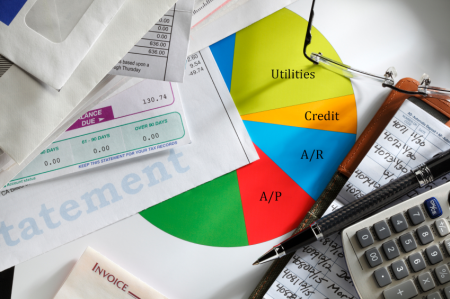This post outlines some of the functionality one should expect from Accounting ERP Software.
All businesses have to manage their accounting processes one way or another. For small businesses this can mean manual data entry and calculations, or the help of an introductory accounting system. Larger businesses, wanting to integrate their accounting software with their inventory and contact management systems, should consider implementing accounting ERP software. With integrated accounting software, all data is accounted for in one database, eliminating the need for duplicate entry and reducing keying errors. In addition, accounting activities are directly connected with inventory activities and vice versa, making the flow of information and the sales process easy to manage. In order to get the most from an accounting ERP system, you should be aware of some of the most important software functionality to look out for:
Key Features
● Standard Accounting Features ● Operational Functions ● Trustworthy Accounting
● Document Management Software ● Electronic Invoicing and Bill Payment
Standard Accounting Features
A proper accounting system will have a set of standard features that apply to most businesses, no matter the industry. These include things such as AR/AP, GL, bank management, financial report writer etc. In addition to these features, a sophisticated system will also account for multi-currency and multi-company, enable real-time posting in which the software automatically posts to GL when receiving invoices and/or payment, allow users to automatically email statements and include the ability to separate the GL accounts by departments.
Operational Functions
An ERP system will extend the accounting system's features by adding functionality to manage the operational aspects of a business. For example, ERP software for a wholesaler will add inventory management, sales and purchase order processing, and supporting logic. Manufacturing ERP software would include production scheduling and MRP capabilities, and ERP software targeted at professional services firms would offer time billing and employee scheduling. This area is the meat of the product from a functional perspective.
Trustworthy Accounting
One major benefit to a proper accounting ERP system is the built-in accounting rules and best practises. Posting integrity controls prevent a business’s books from going out of balance and ensures a trail of entries, adjustments and transactions for auditing purposes. Flags are put in place that prevent users from editing entries without making the proper adjustments.
Document Management Software
As the name suggests, electronic document management software as part of an accounting ERP system allows users to store, index, and retrieve documents related to a variety of fields within the system. This feature eliminates the amount of paper stored in an organization, reduces the amount of time spent filing and retrieving important documentation and assists in keeping information safe. In an accounting ERP system, document management software is a great tool for storing credit applications, customer tax exemption certificates, and supplier invoices in addition to many other important documents.
Electronic Invoicing and Bill Payment
Electronic invoicing and bill payment provides customers an online portal where they can pay outstanding bills, 24/7, 365. This can greatly reduce the receivables cycle and improve cash flow. With an online payment option, there is no longer a need to manually send invoices and receive payments by mail. Invoices can be sent automatically (by email) according to a scheduled date and time, and all payments are received electronically.
Although there are many other important features of accounting software the above list provides insight into the type of functionality one can expect from a sophisticated system. Having a proper system in place will help you manage your business, comply with laws and regulations, attract new clients and keep your customers happy.










